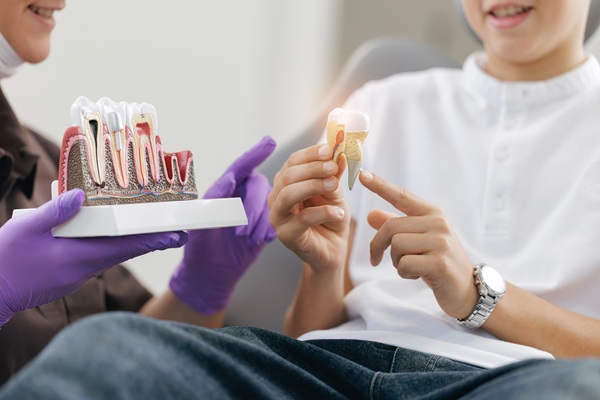A Helpful Guide for Healing after Dental Implants

Dental Implants are the standard when it comes to replacing missing teeth. These prosthetics are the only way to replace a missing tooth and the tooth roots. Other dental devices used to replace missing teeth do not address the missing roots. This often leads to drastic changes in the way the patient's face looks as the bone tissue in the jaw begins to disintegrate. When the root of a missing tooth is replaced with an implant, it keeps the person's jawbone tissue properly stimulated. That helps to preserve the surrounding bone tissue.
About dental implants
Implants are quite popular because of various factors. Not only do they preserve the jawbone, but they also restore the function of your teeth. Lasting up to 25 years, dental implants give you a set of teeth that work just like natural teeth. As for maintenance, you can brush and floss your implants to keep them clean. Other devices need special solutions or adhesives to stay clean and in place. Implants can withstand the rigors of daily life and do not stain like normal teeth.
Installation
Getting dental implants installed can be quite the process. For standard implants, the installation often requires at least three trips to the dentist. It can take up to several months from start to finish. Patients with adequate amounts of jawbone tissue also have the option of getting same-day implants. These types of implants are the pricier choice, but the patient leaves the clinic after the first procedure with their smile fully restored.
Speeding up the recovery process after getting dental implants
Firstly, patients should follow any guidelines provided by their dentist. That said, there are also simple things that you can do to make the recovery period shorter. These include:
- Sticking to only soft foods for a few days after the procedure
- Practicing good dental hygiene by brushing multiple times a day and flossing at least once
- Taking pain medication as recommended by the dentist
- Avoiding intense activities for the first few days after surgery
- Attending all follow-up appointments
- Being careful not to aggravate the wound
- Not taking part in strenuous or dangerous activities that could damage the mouth
Managing pain
You will likely receive pain medication and antibiotics following the surgery. That said, you may experience tenderness and swelling. If so, you can use a cold or warm compress to soothe the pain. Speak with your dentist before taking over-the-counter pain medication.
Ready to get your dental implants?
The beauty of implants is that once the procedure is complete, you are free to go about your business as if you had never lost a tooth. The process may seem daunting, but you will love the results. Follow the advice above to heal quickly and reduce associated pain.
Are you dealing with a missing tooth? Talk to one of our dentists and find out if implants are a good option for you.
Request an appointment here: http://www.riversdentistry.com or call Rivers Family Dentistry at (979) 710-2216 for an appointment in our Bryan office.
Check out what others are saying about our dental services on Yelp: Dental Implants.
Related Posts
Dental implants can restore missing teeth with a stable, natural-looking solution and are often the recommended choice when early warning signs appear in the mouth. Many people assume tooth replacement can wait, especially when only one tooth is missing or when discomfort seems mild. However, delays can allow shifting, bone loss, and bite changes that…
A family dentist can help guide you and your loved ones toward optimal care. These are dentists who are capable of treating the members of your household, from toddlers to senior citizens. Good dental health begins with establishing good oral hygiene routines. Our family dentist advises patients to view brushing and flossing as things they…
A family dentist plays a central role in long-term oral health, and choosing the right family dentist helps households stay consistent with preventive care. Because dental needs evolve from childhood through adulthood and into later years, the ideal practice supports a wide range of services in one location. The right choice reduces stress, simplifies scheduling,…
Rivers Family Dentistry is proud to be a premier dentist near Traditions and the surrounding 77807 area, serving the families who live, work, and play in one of Bryan’s most vibrant and prestigious communities. Whether you are spending a Saturday morning at the Traditions Club playing golf, enjoying the scenic trails near Lake Walk, or…


